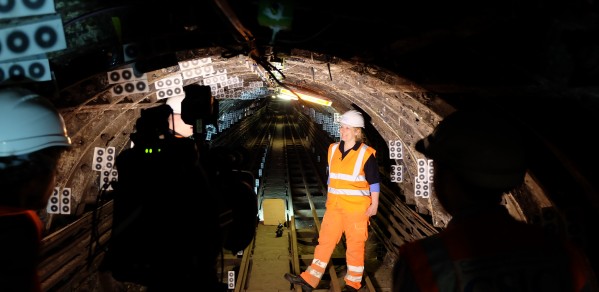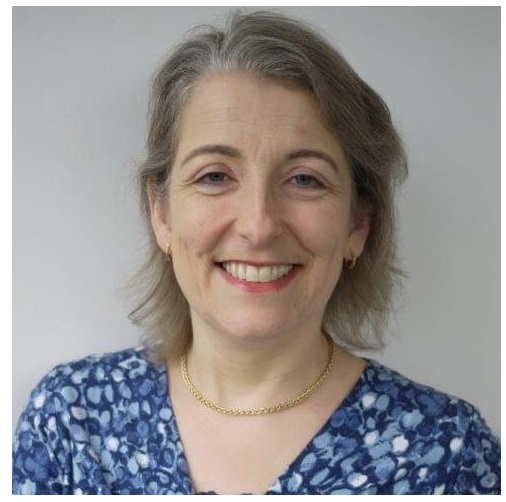
As part of our Women in Engineering series, we meet Dr Jennifer Schooling, Director of the Cambridge Centre for Smart Infrastructure and Construction (CSIC).
Engineering is such a varied, interesting field to work in and there is a real sense of achievement in designing or creating something which you see used.
Dr Jennifer Schooling
Hi Jennifer, how did you get into engineering?
I stumbled into engineering by accident. I came to Cambridge thinking I wanted to do Physics – I went to an all-girls grammar school in the south of England, so I hadn’t realised that all the things I really liked about Physics were actually Engineering. I ended up moving from Physics to Materials Science in my second year (the benefit of the flexible system in Cambridge).Then I did a PhD sponsored by Rolls-Royce, looking at fatigue in aero-engine materials and how one might use neural networks to model their properties.
After that, I got a job for Edwards Vacuum, initially looking at materials issues, but then I moved into designing turbomolecular vacuum pumps, leading a new product introduction team of designers, development engineers and production engineers. I moved to Arup to work on developing their research relationships and ended up working on sustainability and infrastructure and that led me back to Cambridge.

What are you doing now and what are your plans for the future?
I am now the Director of the Cambridge Centre for Smart Infrastructure and Construction (CSIC), which combines all the aspects of my (rather random) engineering experience into one exciting role.
CSIC is a research and innovation centre based in Civil Engineering, but collaborating with other Engineering divisions including IfM, Nanoscience and Information Engineering, and colleagues in the departments of Architecture and Land Economy. So the job is extremely varied and very interesting.
We look at all the components of ‘smart infrastructure’, from developing the sensors which gather the data, to how to analyse and interpret the data to give engineering insights, using that data for ‘value based’ asset management and then at the city scale, how to design and deliver infrastructure that meets the varying needs of our communities.
As for the future – I’ve never had a plan, I’ve always just done the next interesting thing that came along and it’s always worked out well!
What motivates/interests you?
CSIC is a very collaborative environment, which is something I’ve always valued in a workplace. I am by nature an ‘integrator’ and I enjoy drawing together the various threads of expertise in CSIC to create the ‘bigger picture’ that our industry partners and government stakeholders can engage with. I love working with such a wide range of really enthusiastic people who are willing to share their ideas and work together.
What has helped your career?
My school Physics teacher, Mr Scanlan, really inspired my love of things technical and encouraged me to pursue a science degree. Since then, I’ve been fortunate to have a series of great bosses who have helped me see my strengths and build on them and to work with great colleagues who are prepared to have a bit of fun in the midst of all the busy-ness and inevitable stress of the job.
Do you have any role models?
I’ve always admired Jocelyn Bell Burnell who discovered pulsars. She started out on her scientific career at a time when there were very few women in the field and their contribution was not always recognised, but she nonetheless persisted and carried out fantastic science, carving out an amazing career for herself.
Do you have any advice for women who are considering studying/pursuing a career in Engineering?
Do it! It is such a varied, interesting field to work in and there is a real sense of achievement in designing or creating something which you see used. I remember walking in to a friend’s lab at Imperial College and seeing a turbo-pump I’d designed hanging off one of his scientific instruments, enabling his physics experiments to happen. Pumps I’ve designed have been used in CERN as well. Pretty cool!
This article has been edited from the University of Cambridge Women in Engineering website.

